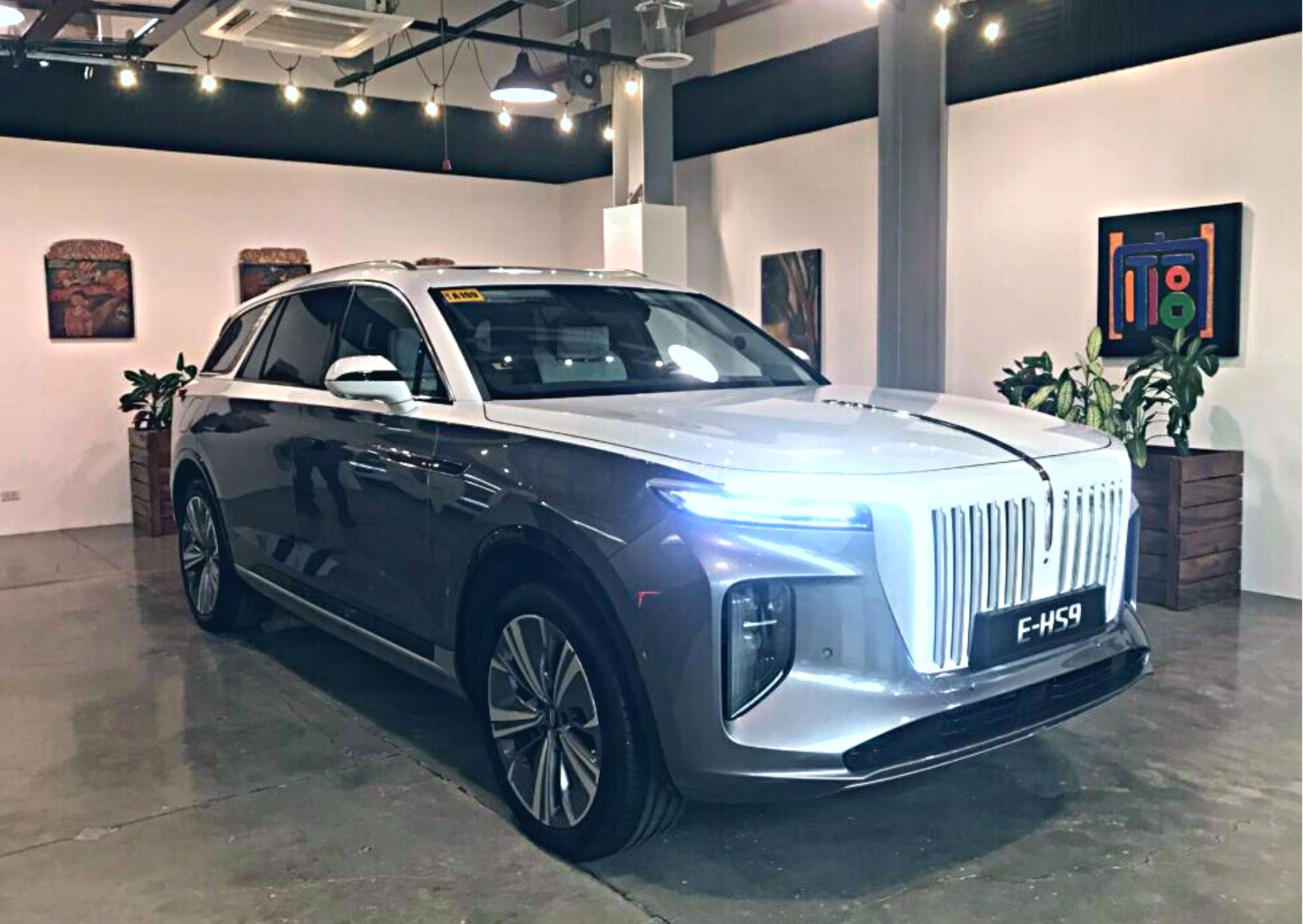The Shifting Sands Of The Chinese Auto Market: A Look At BMW And Porsche

Table of Contents
BMW's Strategy in the Face of Changing Consumer Preferences
The Rise of Domestic Competitors
The Chinese auto market is witnessing a surge in domestically produced vehicles, particularly electric vehicles (EVs), posing a significant challenge to established international brands like BMW. Chinese automakers are rapidly improving their technology and design, offering competitive EVs and luxury features at significantly lower price points.
- Examples of successful Chinese brands: NIO, Xpeng, BYD, and Li Auto are disrupting the market with sophisticated EVs and compelling features.
- Technological advancements by Chinese manufacturers: Advanced battery technology, autonomous driving features, and connected car services are increasingly competitive with those offered by international brands.
- Price competitiveness: Domestic brands often undercut international competitors on price, making them attractive to a wider range of Chinese consumers.
Electrification and the iX/i4 Push
BMW's response to this challenge involves a significant push into the electric vehicle market in China. The iX and i4 represent key models in this strategy, but their reception has been mixed. While the Chinese government offers substantial incentives for EV adoption, challenges remain.
- Sales figures for EVs in China: While overall EV sales are booming, specific figures for the iX and i4 in China require further investigation and are crucial for evaluating BMW's success in this segment.
- Government incentives for EVs: Substantial subsidies and tax breaks are driving EV adoption, but these incentives are constantly evolving.
- Charging infrastructure challenges: The development of a comprehensive and reliable charging infrastructure is still ongoing, impacting the adoption rate of EVs, especially in less developed regions.
Maintaining Brand Prestige in a Changing Market
BMW faces the challenge of upholding its premium brand image while adapting to the increasingly sophisticated and demanding preferences of Chinese consumers. This requires a multi-pronged approach.
- Marketing campaigns: Targeted campaigns showcasing BMW's heritage, technology, and commitment to luxury are essential.
- Customer service initiatives: Superior customer service and personalized experiences are key differentiators in a competitive market.
- Local partnerships: Collaborations with local businesses and influencers can enhance brand awareness and credibility.
- Unique features for the Chinese market: Tailoring specific features and options to cater to the unique preferences of Chinese consumers is vital.
Porsche's Approach: Maintaining Exclusivity Amidst Market Fluctuations
Focus on High-End Models and Customization
Porsche's strategy in China centers on its high-performance vehicles and a strong emphasis on customization. This approach appeals to the affluent Chinese consumer segment, who value exclusivity and personalized experiences.
- Sales figures of specific models in China: The Cayenne and Macan SUVs remain popular, while the 911 continues to attract high-net-worth individuals. Data on these sales figures is vital for market analysis.
- Popularity of specific features: Features like bespoke interiors, advanced technology packages, and performance upgrades are highly sought after.
- The importance of personalization in the Chinese market: Offering customized options is crucial for standing out in a competitive luxury market.
The Electric Taycan and its Reception
The Taycan, Porsche's all-electric flagship model, is crucial to their future in China's evolving automotive landscape. Its success will depend on several factors.
- Sales figures compared to gasoline-powered models: Analyzing the Taycan's sales against traditional Porsche models provides insights into consumer acceptance of electric luxury vehicles.
- Charging infrastructure impact: The availability of charging stations significantly impacts the appeal of EVs.
- Marketing campaigns focusing on sustainable luxury: Porsche emphasizes the Taycan's sustainable aspects while maintaining its luxurious image.
Balancing Global Brand Identity with Local Appeal
Porsche skillfully balances its global brand image with tailored marketing strategies for the Chinese market.
- Marketing strategies tailored to China: Porsche uses localized marketing campaigns and messaging to connect with Chinese consumers.
- Collaborations with local influencers: Partnering with key influencers helps raise brand awareness and reach specific demographics.
- Community engagement: Participating in local events and sponsorships builds brand affinity.
Analyzing the Broader Trends Shaping the Chinese Auto Market
The Growing Demand for Electric and Hybrid Vehicles
The Chinese government's push for electric vehicles, coupled with growing environmental concerns among consumers, is driving a significant shift towards EVs and hybrids.
- Government regulations and policies: Stringent emission standards and incentives for electric vehicles are accelerating market transformation.
- Consumer preference shifts: Increased awareness of environmental issues is influencing consumer choices.
- Technological advancements: Rapid improvements in battery technology and charging infrastructure are fueling EV adoption.
The Influence of Technology and Digitalization
Technology and digitalization are dramatically shaping consumer behavior and purchasing decisions in China.
- Online car purchasing platforms: Digital platforms are becoming increasingly important for car sales and marketing.
- Digital marketing strategies: Online advertising and social media marketing are vital for reaching Chinese consumers.
- Technological integration in vehicles: Consumers expect advanced connectivity features and infotainment systems.
Economic Factors and Their Influence
Economic conditions and government policies significantly impact the luxury car market in China.
- GDP growth: Economic growth directly correlates with the demand for luxury goods.
- Disposable income levels: The spending power of Chinese consumers is a key factor in determining market size.
- Import/export regulations: Tariffs and other trade policies can affect the cost and availability of imported vehicles.
Conclusion
The Chinese auto market presents a complex and dynamic landscape for brands like BMW and Porsche. While both have implemented strategies to navigate the shifting sands of consumer preferences and technological advancements, their continued success hinges on adaptability, innovation, and a deep understanding of the unique cultural and economic factors at play. Understanding the nuances of the Chinese auto market is crucial for any luxury brand hoping to thrive in this critical region. To stay informed on the latest developments and strategies within the Chinese automotive market, continue following our analysis and insights. Further research into the BMW China and Porsche China operations will provide a more complete picture of these brands' navigation of this challenging yet rewarding market.

Featured Posts
-
 Goroskopy I Predskazaniya Ot Luchshikh Astrologov
May 23, 2025
Goroskopy I Predskazaniya Ot Luchshikh Astrologov
May 23, 2025 -
 Netflix Nou Serial Distributie De Oscar O Noua Era A Divertismentului
May 23, 2025
Netflix Nou Serial Distributie De Oscar O Noua Era A Divertismentului
May 23, 2025 -
 Kkr And Rcb Ipl 2025 Player Replacements Full Details
May 23, 2025
Kkr And Rcb Ipl 2025 Player Replacements Full Details
May 23, 2025 -
 Zimbabwe Cricket Triumph Muzarabani And Masakadza Lead The Charge
May 23, 2025
Zimbabwe Cricket Triumph Muzarabani And Masakadza Lead The Charge
May 23, 2025 -
 Final Concacaf Mexico Vs Panama Guia Completa Para Ver El Partido
May 23, 2025
Final Concacaf Mexico Vs Panama Guia Completa Para Ver El Partido
May 23, 2025
Latest Posts
-
 Jonathan Groffs Just In Time Opening Lea Michele And Castmates Celebrate
May 23, 2025
Jonathan Groffs Just In Time Opening Lea Michele And Castmates Celebrate
May 23, 2025 -
 Jonathan Groffs Just In Time Opening Lea Michele Daniel Radcliffe And More Celebrate
May 23, 2025
Jonathan Groffs Just In Time Opening Lea Michele Daniel Radcliffe And More Celebrate
May 23, 2025 -
 A Couples Fight Joe Jonass Response And A Viral Moment
May 23, 2025
A Couples Fight Joe Jonass Response And A Viral Moment
May 23, 2025 -
 Joe Jonas Addresses Couples Argument Involving Him
May 23, 2025
Joe Jonas Addresses Couples Argument Involving Him
May 23, 2025 -
 Jonathan Groffs Broadway Opening Lea Michele And Friends Offer Support
May 23, 2025
Jonathan Groffs Broadway Opening Lea Michele And Friends Offer Support
May 23, 2025
